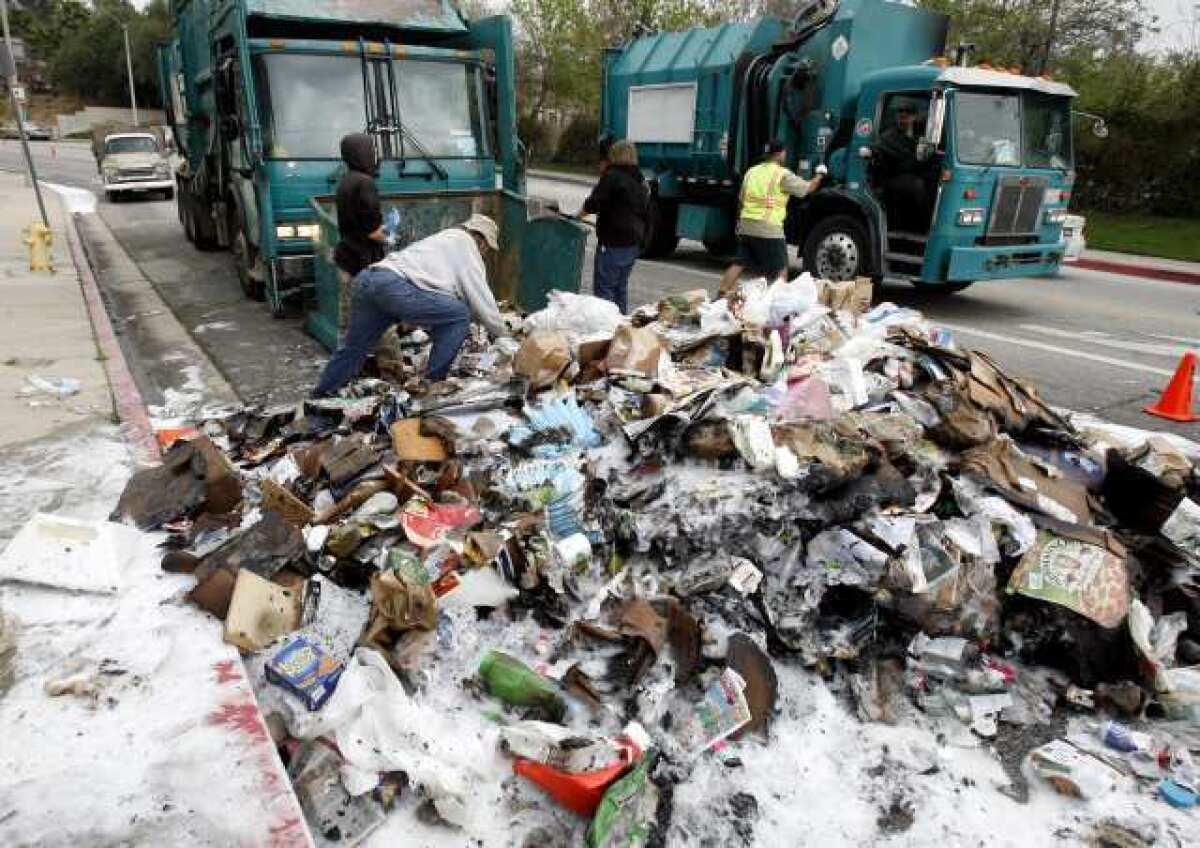Council to eye utility, sewer fee increases

Burbank might be able to use one-time money to plug a projected $1.1-million budget gap for next fiscal year — but that’s only if the City Council approves a collection of utility, sewer and trash-collection rate increases.
Financial Services Director Cindy Geraldo said the city takes a “multi-pronged approach” to balancing the budget, including service reductions, fee increases, efficiencies and the use of one-time funds.
With the mix of proposed spending reductions and rate increases, the city has the money to plug the remaining $1.1-million gap, she said.
For residents, that means a possible sewer rate increase of 2.25%; a refuse rate increase of 3%; water rate increases of 4.5%; and an electric rate increase of 1.75%, according to the city.
The rate increases would amount to an increased monthly cost to residents of 49 and 89 cents for sewer and refuse bills, respectively, Deputy City Manager Joy Forbes said.
Residents in larger households can expect a $2.80 increase on their water bills if the proposed increases are approved, according to Burbank Water and Power.
An additional $1.60 is estimated for residents’ summer electric bills compared to last summer, and about $1.20 more on their winter electric bills, according to information presented by utility officials during a budget study session last week.
The $1.1 million in one-time funds will come from an unassigned General Fund balance, Geraldo said.
Public Works Director Bonnie Teaford said there several reasons for the proposed rate increases for trash collection and sewer rates, including rising employee salaries, retirement benefits and operational costs.
If approved, the sewer rate increase would mean additional revenue of $346,000 a year, Teaford said. About $906,000 could be brought in with refuse rate increases.
Teaford also said she is planning now for future construction projects.
Another driver of the increase in rates is tied to the loss of the commodity fee at the recycling center due to certification issues, Teaford said.
“We used to get about $500,000 a year, and now we’re paying the new operator that same amount,” she said.
Bob Liu, chief financial officer for Burbank Water and Power, said the rate increases are due to the increased cost of imported water and electricity.
The higher rates charged by the Metropolitan Water District of Southern California alone account for the 4% of the proposed local rate increase, he added.
About half a percent will cover the rebuilding of a reservoir and pay for the bonds, Liu said.
On the electricity side, the rate increases amount to about $3 million to cover the cost of a requirement that Burbank Water and Power purchase more renewable energy, Liu said.
Liu noted that other utilities simply pass the costs onto customers, while Burbank Water and Power must get the council and public’s input first.
City departments have been working on their respective budgets since January.
Study sessions, which are open to the public, continue on Tuesdays and Thursdays through May 24. A public hearing on the final draft budget is scheduled for June 5.